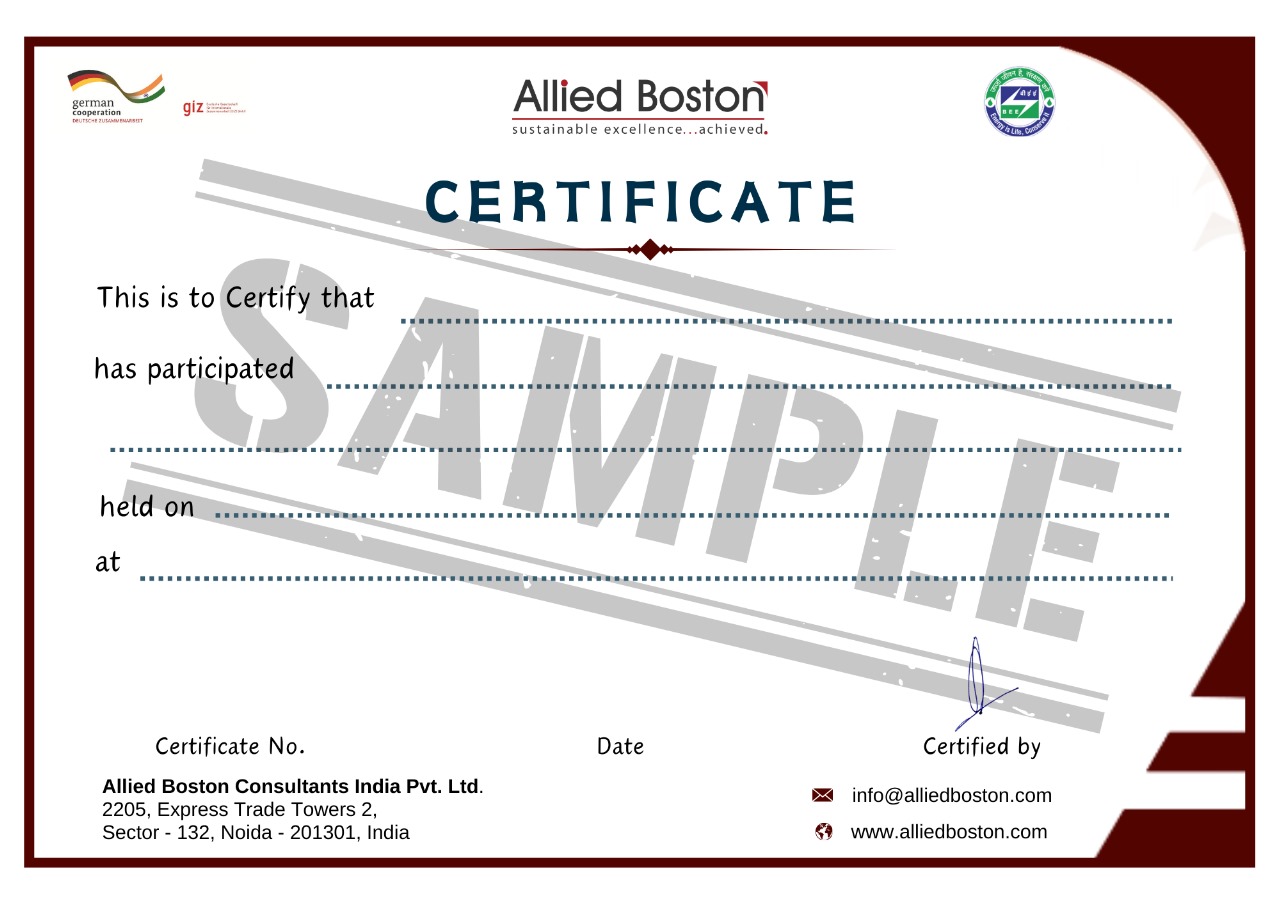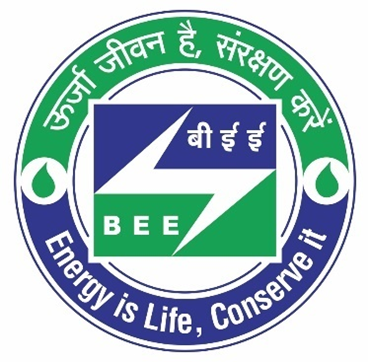ISO 50001:2018 Energy Management
Systems Implementation Training Programme
Training Locations
Maharashtra, Karnataka, Uttar Pradesh, PunjabFocused Industry
Paper & Pulp, and Secondary Steel IndustryDURATION
2 daysCERTIFICATE
All delegates will get a certificate on completion.
"Elevate your energy strategy with ISO 50001: Enhance efficiency, cut costs, and lead in sustainability."
- Plant Managers
- Energy Managers
- Operations Managers
- Maintenance Manager
- Anyone involved in energy management and sustainability within the Paper & Pulp and Secondary Steels Industry
- Introduction to Energy Management Systems Standards ISO 50001:2018.
- Plan/Do/Check/Act (PDCA) cycle and how it is used with an Energy Management System.
- Terms & definitions used in energy management.
- Requirements of ISO 50001:2018 International Standard.
- Define objectives & targets, planning the actions to achieve them.
- Determination of Significant Energy uses, Energy Performance Indicators and Baselines.
- Identify possible areas for improvement
- Planning for energy data collection.
- Management of compliance obligations.
- Management of risks and opportunities.
- Monitoring, measurement, analysis and evaluation of energy data.
- Data analysis and energy reporting.
- Internal Auditing of Energy Management System.
- Management for energy efficiency action plans.
- Energy Management Best Practices: Understanding & implementing ISO 50001:2018 standards to manage & reduce energy consumption.
- Operational Efficiency: Identifying and addressing inefficiencies to enhance productivity and reduce waste.
- Sustainability Strategies: Developing sustainable practices to minimize environmental impact.
- Data Analysis and Reporting: Utilizing data to monitor energy usage and generate insightful reports.
- Regulatory Compliance: Ensuring adherence to local, national, and international energy and environmental regulations.
- Cost Reduction Techniques: Identifying and implementing cost-saving measures.
- Innovation and Technology Integration: Exploring and applying new technologies for improved energy efficiency.
- Stakeholder Engagement: Effective communication with stakeholders to promote energy efficiency and sustainability.
- Project Management: Managing energy efficiency projects from start to finish to achieve desired outcomes.
- Enhanced understanding of energy management systems and their application.
- Excel Tools and Formats of EnMS.
- Insights into regulatory compliance and best practices.
- Opportunity of networking with industry peers and experts.
- A certificate of participation, recognizing their commitment to energy efficiency.

Upcoming courses
Maharashtra

Classroom Session

Classroom Session

Classroom Session

Classroom Session

Classroom Session
Karnataka



Uttar Pradesh

Classroom Session

Classroom Session

Classroom Session

Classroom Session
Punjab

Classroom Session

Classroom Session

Classroom Session

Classroom Session

Classroom Session
Chhattisgarh

Classroom Session
An Energy Management System (EnMS) is a management framework that enables an organization to systematically track, analyze, and improve its energy efficiency. The purpose of an EnMS is to promote continuous improvement in energy performance, reduce energy consumption, and lower environmental impact. This enables organisations to cut their energy costs and in turn overall operational costs.
ISO (International Organization for Standardization) is an independent, non-governmental international organization that develops and publishes standards across a wide range of industries and sectors. These standards are designed to ensure the quality, safety, efficiency, and interoperability of products, services, and systems. The goal of ISO is to facilitate international trade, promote innovation, and provide solutions to global challenges. The ISO 50001 standard, for example, specifically focuses on energy management, providing organizations with a framework to manage and reduce their energy consumption systematically.
The Paper & Pulp and Secondary Steel sectors are targeted for energy management training due to their high energy consumption, significant environmental impact, and potential for cost savings. These industries are energy-intensive and face stringent regulatory requirements, making energy efficiency crucial for compliance and sustainability. Improved energy management can reduce operational costs, lower greenhouse gas emissions, and enhance resource efficiency. Tailoring the training to these sectors addresses their specific challenges and promotes the adoption of best practices and innovative technologies, contributing to national energy savings and environmental protection efforts.


